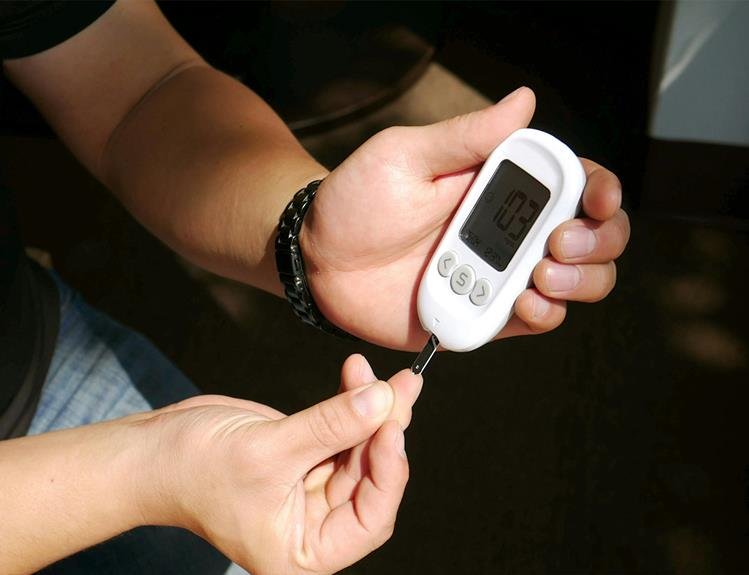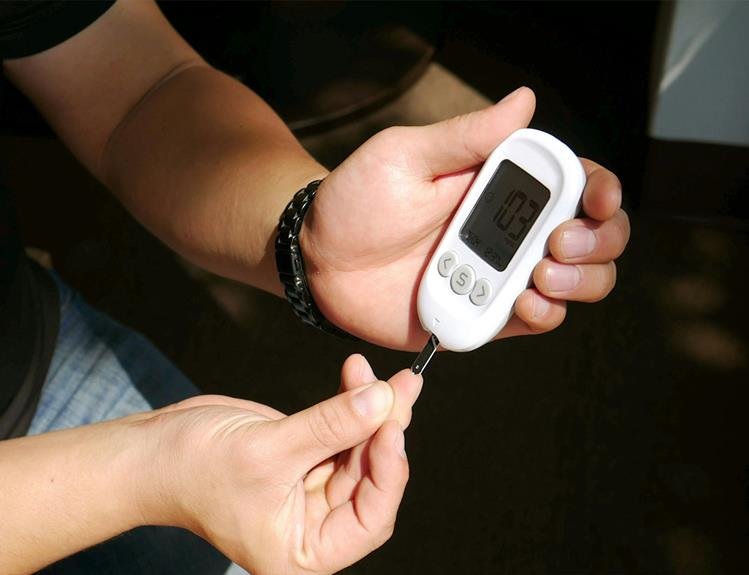Neuropathy and Diabetes: What You Need to Know
Did you know that approximately 60-70% of people with diabetes will develop some form of neuropathy during their lifetime? Understanding the relationship between diabetes and neuropathy is crucial for managing both conditions effectively.
From recognizing symptoms to exploring treatment options, gaining insight into this connection can significantly impact your health outcomes.
Learn more about how neuropathy and diabetes intersect to empower yourself with the knowledge needed for better disease management.
Definition of Neuropathy
If you have diabetes, neuropathy is a term that refers to nerve damage caused by high blood sugar levels. This condition can lead to tingling, numbness, or pain in your extremities, affecting your quality of life. Nerve damage occurs over time due to prolonged exposure to elevated glucose levels in the blood.
The impact of neuropathy can vary from person to person, ranging from mild discomfort to severe pain and loss of sensation. It commonly affects the feet and legs, but can also affect other parts of the body. Managing your blood sugar levels through medication, diet, and exercise is crucial in preventing or slowing down the progression of neuropathy.
Early detection and treatment are essential to prevent further nerve damage and improve symptoms. Regular check-ups with your healthcare provider, monitoring your blood sugar levels, and adopting a healthy lifestyle are key steps in managing neuropathy effectively. By taking proactive measures, you can minimize the impact of neuropathy on your daily life and overall well-being.
Types of Neuropathy
Let's talk about the different types of neuropathy you need to know.
Diabetic Neuropathy Overview, Symptoms and Signs, and Management Strategies will be discussed in detail.
Understanding these aspects can help you manage your condition more effectively.
Diabetic Neuropathy Overview
When discussing diabetic neuropathy, it's essential to understand the various types of neuropathy that can affect individuals with diabetes.
There are four main types of diabetic neuropathy: peripheral neuropathy, autonomic neuropathy, proximal neuropathy, and focal neuropathy. Peripheral neuropathy is the most common type and affects the nerves that control sensation, movement, and coordination.
Autonomic neuropathy impacts the nerves that control automatic bodily functions like digestion, heart rate, and blood pressure. Proximal neuropathy affects the nerves in the thighs, hips, or buttocks, causing weakness and pain.
Focal neuropathy results in the sudden weakness of a specific nerve or group of nerves, leading to muscle weakness or pain in a specific area.
Understanding these types is crucial for managing diabetic neuropathy effectively.
Symptoms and Signs
Understanding the symptoms and signs of different types of neuropathy is crucial for effectively managing diabetic neuropathy. There are various types of neuropathy that can affect individuals with diabetes. Peripheral neuropathy often presents with symptoms like tingling, numbness, and pain in the hands and feet.
Autonomic neuropathy may manifest as digestive issues, dizziness, or changes in heart rate. Proximal neuropathy can cause weakness or pain in the thighs, hips, or buttocks. Focal neuropathy typically leads to sudden and severe pain in a specific nerve, often in the head, torso, or leg.
Being aware of these signs can help you identify the type of neuropathy you may be experiencing and seek appropriate treatment promptly.
Management Strategies
To effectively manage different types of neuropathy in diabetes, it's essential to implement specific management strategies tailored to each type. For peripheral neuropathy, maintaining stable blood sugar levels through diet, exercise, and medication is crucial. Regular foot care and wearing comfortable shoes can help prevent complications associated with diabetic neuropathy.
Autonomic neuropathy may require medications to manage symptoms like digestive issues or blood pressure fluctuations. Focal neuropathy, characterized by sudden weakness or pain in specific nerves, may improve with physical therapy or medications. Proximal neuropathy, affecting the hips, thighs, or buttocks, may require pain management and physical therapy to enhance mobility.
Symptoms of Neuropathy
Experiencing tingling sensations, numbness, or pain in your extremities could be indicative of neuropathy, a common complication of diabetes. These symptoms often start in the feet and legs but can gradually advance to the hands and arms. The tingling may feel like pins and needles, while the numbness can lead to a loss of sensation, making it difficult to feel hot or cold. Pain associated with neuropathy is often described as sharp, burning, or cramping.
Aside from sensory symptoms, neuropathy can also manifest as muscle weakness, leading to difficulty in moving certain body parts. You may notice changes in your gait or coordination due to this weakness. Moreover, neuropathy can affect internal organs, causing symptoms like digestive issues, dizziness or fainting from blood pressure changes, or sexual dysfunction.
It's essential to recognize these symptoms early on and seek medical advice promptly to prevent further nerve damage. Regular monitoring and management of blood sugar levels can help slow down the progression of neuropathy and improve your quality of life.
Link Between Neuropathy and Diabetes
The connection between neuropathy and diabetes becomes evident through the impact high blood sugar levels have on nerve health. When you have diabetes, consistently high levels of glucose in your bloodstream can damage the tiny blood vessels that supply oxygen and nutrients to your nerves. This damage can lead to a condition known as diabetic neuropathy, where the nerves in your body are affected, causing symptoms such as tingling, numbness, or pain.
As a result of this nerve damage, you may experience difficulty in sensing pain or temperature changes, making you more susceptible to injuries without even realizing it. Moreover, diabetic neuropathy can affect various parts of the body, including the legs and feet, hands, digestive system, and organs like the heart and eyes.
It's essential to manage your blood sugar levels effectively through proper diet, exercise, and medication to reduce the risk of developing neuropathy or to slow its progression if already diagnosed.
Risk Factors for Neuropathy
High blood sugar levels play a significant role in increasing the risk of developing neuropathy in individuals with diabetes. Consistently elevated blood sugar levels can damage the nerves throughout your body, leading to neuropathy.
Another risk factor is the duration of diabetes; the longer you have diabetes, the higher your chances of developing neuropathy. Poorly managed diabetes, characterized by uncontrolled blood sugar levels, also raises the risk.
Additionally, high blood pressure and high levels of cholesterol can contribute to nerve damage, further increasing the likelihood of neuropathy. Smoking and excessive alcohol consumption are lifestyle factors that can exacerbate nerve damage in diabetic individuals.
Being overweight or obese puts extra strain on the body and can worsen neuropathy symptoms. Lastly, genetics can play a role in predisposing some individuals to neuropathy.
Understanding these risk factors is crucial in managing diabetes effectively and reducing the chances of developing neuropathy.
Prevention Strategies
To prevent neuropathy related to diabetes, it's crucial to adopt healthy lifestyle habits like maintaining a balanced diet and staying physically active.
Regular medical check-ups are also essential to monitor your blood sugar levels and catch any signs of neuropathy early on.
Taking proactive steps now can help you avoid or manage the complications of neuropathy in the future.
Healthy Lifestyle Habits
Incorporate regular physical activity into your daily routine to help prevent neuropathy complications associated with diabetes. Aim for at least 150 minutes of moderate-intensity exercise per week. Activities like walking, swimming, or cycling can improve blood circulation, control blood sugar levels, and reduce nerve damage risk.
Additionally, maintain a balanced diet rich in fruits, vegetables, whole grains, and lean proteins. Limit sugary and processed foods to keep your blood glucose stable.
Manage stress through relaxation techniques like yoga or meditation, as stress can worsen neuropathy symptoms. Adequate sleep is crucial for overall health and can positively impact nerve function.
Regular Medical Check-Ups
To ensure comprehensive management of your diabetes and prevent potential complications like neuropathy, prioritize scheduling regular medical check-ups as part of your prevention strategies. Regular check-ups allow your healthcare provider to monitor your blood sugar levels, assess your overall health, and catch any issues early before they escalate.
These appointments are crucial for adjusting your treatment plan, discussing any concerns or symptoms you may have, and receiving necessary screenings or tests. By staying proactive with your medical check-ups, you can work together with your healthcare team to keep your diabetes well-managed and reduce the risk of developing neuropathy or other complications.
Treatment Options
Explore various treatment options for neuropathy associated with diabetes to find the most effective solution for managing your symptoms. The treatment approach for diabetic neuropathy focuses on alleviating pain, managing symptoms, and preventing further nerve damage. Medications such as pain relievers, antidepressants, and anticonvulsants may be prescribed to help control nerve pain and discomfort. Additionally, topical treatments like capsaicin cream can provide relief by desensitizing the nerves in the affected areas.
Physical therapy and regular exercise play a crucial role in managing neuropathy symptoms. Physical therapists can design a personalized exercise plan to improve strength, flexibility, and balance, which can help reduce pain and prevent falls. Acupuncture and massage therapy are alternative treatments that some individuals find beneficial in alleviating neuropathic pain.
In more severe cases, procedures like nerve blocks or electrical nerve stimulation may be recommended to provide pain relief. It's important to work closely with your healthcare team to determine the most suitable treatment plan for your specific condition. By exploring these various treatment options, you can better manage diabetic neuropathy and improve your quality of life.
Frequently Asked Questions
Can Neuropathy Caused by Diabetes Be Reversed or Cured?
Yes, neuropathy caused by diabetes can be managed and symptoms alleviated through various treatments like maintaining blood sugar levels, medication, and lifestyle changes. While complete reversal or cure may not always be possible, improvement is achievable.
Are There Any Specific Exercises or Physical Activities That Can Help Manage Neuropathy Symptoms?
To manage neuropathy symptoms, try incorporating low-impact exercises like walking, swimming, or cycling. These activities can improve circulation, reduce pain, and promote overall well-being. Consult with your healthcare provider before starting any new exercise routine.
How Often Should Individuals With Diabetes Get Screened for Neuropathy?
You should get screened for neuropathy annually if you have diabetes. It's essential to monitor for any early signs of nerve damage to prevent complications. Regular screenings help catch issues early and manage them effectively.
Are There Any Alternative or Complementary Therapies That Can Be Effective in Treating Neuropathy?
You can explore alternative or complementary therapies for neuropathy. Some options, like acupuncture, supplements, and physical therapy, may help manage symptoms. Always consult with your healthcare provider before trying any new treatments to ensure safety and effectiveness.
Is There a Link Between Neuropathy and Mental Health Issues, Such as Depression or Anxiety?
Yes, there is a link between neuropathy and mental health issues like depression or anxiety. The constant pain and limitations caused by neuropathy can lead to feelings of hopelessness and anxiety. It's essential to address both physical and emotional aspects for comprehensive treatment.
Conclusion
So, remember, neuropathy and diabetes are like two tangled vines in a garden of health.
It's crucial to untangle them by understanding the types of neuropathy, recognizing symptoms early, and taking steps to prevent and treat this condition.
By doing so, you can prune away the risk factors and nurture your well-being like a flourishing flower bed in full bloom.
Stay informed, stay proactive, and let your health blossom.






